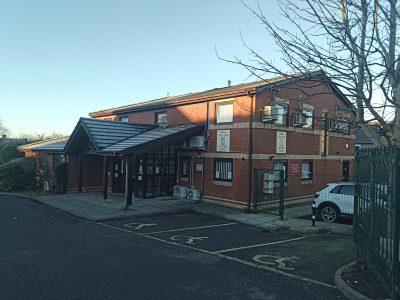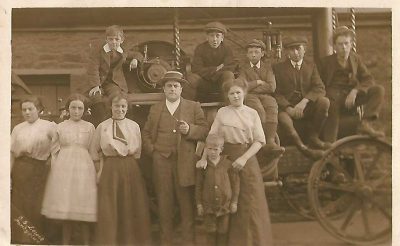Site of old National School, Pontyclun

The National School in Pontyclun opened on 2nd February 1880, when school attendance was made compulsory for children from age 5 to 10. Initially the pupils were expected to pay a few pence weekly for their education. Unfortunately, from the beginning the school was too small for the numbers who attended. Out of hours it was also used for other purposes including housing church worship before St Paul’s Church was built in 1895.
The old National School closed in 1911, when pupils, staff and equipment were transferred to the “Tin School” in Maesyfelin. Consequently, the Old School building in School Street was put to a variety of different uses over the next eighty years or so, until it was demolished in 1992 to make way for the present day “Old School Surgery” which was built in its place. These uses continued to include Church activity.
National Schools
National Schools were set up in the nineteenth century to provide education for poorer families. Many were set up by the Church of England body, known as the National Society for Promoting the Education of the Poor in the Principles of the Established Church in England and Wales. It was set up in 1811 with the aim that “the National Religion should be made the foundation of National Education, and should be the first and chief thing taught to the poor, according to the excellent Liturgy and Catechism provided by our Church.”
School street – a hub of local industry
The bottom of School street was quite a hub of industry. In what is now Victoria Mews, the Pontyclun Aerated Water Company was based. This produced mineral water and was already well known in the area by 1899. It is presumed they extracted their water from the River Ely.

There was also T Morgan and Sons Ltd who were bottlers and there may also have been a brewer here. This firm was well known as being the first firm to use a steam lorry to transport their bottled goods. In 1903 the owners were fined £135 ( a huge sum in thise times) for causing damage to the road from Pontyclun to Bridgend
For more information about the history of the community of Pontyclun please visit our online museum